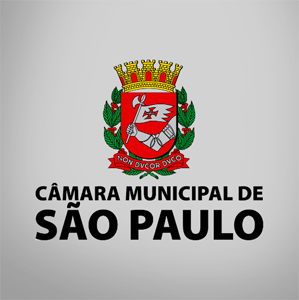Fabiano Borsato meets São Paulo’s city councilwoman Janaína Lima
Torino Capital LLC encourages private participation for economic and social development
It is necessary to invest in measures that encourage the responsible management of private social investments, as well as in initiatives that guide and qualify these investments.”
NEW YORK, UNITED STATES, July 31, 2019 /EINPresswire.com/ -- Janaína Lima stimulates public-private partnerships in São Paulo, making the city more attractive to investors.— Fabiano Borsato - COO of Torino Capital
In July, Fabiano Borsato, chief operating officer of Torino Capital, had the opportunity to meet São Paulo’s city councilwoman Janaína Lima. During the meeting, public management initiatives that end up making certain places more attractive to receive incentives and investments were debated, as well as the potential, advantages, and results of public-private partnerships. Just as Janaína, Torino Capital, represented at the occasion of the meeting by Borsato, believes that encouraging private participation through corporate social investments is a fundamental movement for the economic and social development of any country. However, Borsato warns that, if this is to be done skillfully and beneficially for society, it is necessary to invest in measures that encourage the responsible management of private social investments, as well as in initiatives that guide and qualify these investments.
Councilwoman Janaína was in the United States, attending a course on public leadership called "International Program for Public Leaders" guided precisely by these qualification and investment orientation objectives. According to the councilwoman's reports on her social media networks, the experience was very valid mainly due to the data, case studies and projections presented on public-private partnerships. Throughout the course, a variety of tools were taught, such as metrics and checklist systems, that allow leaders to build reliable mechanisms to obtain more successful and prosperous public policy outcomes. One of the major problems faced by public management is the lack of monitoring and continuity of initiated projects, which is due to several reasons, including the exchange of governments. The mechanisms, tools, and techniques presented throughout the course appear as alternatives to deal with these problems of administrative instability, in addition to other difficulties.
Along with public leaders from different positions and different perspectives, councilwoman Janaína had the opportunity to learn from the experiences reported and debated among the participants, noticing similarities and addressing varied interpretations. In addition to exchanging experiences and taking lessons in the classroom, the group of public managers participated in visits to the American Congress, the World Bank, and the Brazilian Embassy in the United States. The meetings were instrumental in debating the priorities of relations between Brazil and the United States, as well as discussing the inclusion of Brazilian municipalities and states in international cooperation initiatives. More specifically about the city of São Paulo, the visit to the World Bank allowed them to think about ways to build transparency processes for all projects already approved by the World Bank for São Paulo.
Janaína also highlighted the visit to the NoMa neighborhood in Washington DC as an excellent opportunity to learn about the recovery work of an old dilapidated community of the city, whose teachings can be applied to the state capital. The purpose of participating in the course is to implement its learning to the reality of the city of São Paulo, improving existing public-private initiatives and stimulating new partnerships.
Who is Janaína Lima: Born in Capão Redondo, on the outskirts of São Paulo, Janaína is a lawyer and postgraduate in Public Law. Before starting her first term as city councilor of São Paulo, in 2016, the parliamentarian was Youth Coordinator at the State Secretariat of Sport, Leisure and Youth, and manager of the Development Agenda at the Secretariat of Planning and Regional Development in the government of the State of São Paulo. In addition to being currently part of the UN-linked network, Nexus Brazil, she was a member of Global Shapers, where she was chosen as one of the exceptional young women through an initiative of the World Social Forum. The parliamentarian has also run for a seat at the United Nations Women Latin America and the Caribbean.
Since 2015, she has been a leader for the Sustainable Political Action Network (RAPS), an organization focused on improving society through political action. Among the national and international awards she has already received, the most notable one is the First Sapphire Award from Rotary International. In April 2017, Janaína spoke at the Brazil Conference, organized by the Massachusetts Institute of Technology (MIT) and Harvard University in Boston, United States. In October 2018, she lectured on education to young Brazilian students in the United States at Georgetown University.
As soon as she took office, Janaína gave up several privileges to which she was entitled, such as a driver and an official car, reduced her number of advisors, thus far-reaching savings of more than 3 million reais. The money already saved went to the Department of Education, applied to actions and projects aimed mainly at early childhood, one of the priority issues of her management. Another topic treated as a priority in her tenure is supporting entrepreneurship, the councilwoman believes that encouraging entrepreneurial spirits can help citizens transform their environment by creating new investment and development opportunities.
One of her projects with the most significant repercussion and impact is called Ambassadors for Change, a free-to-participate digital platform that allows any interested São Paulo citizen to engage in creating solutions to the city's problems. According to official data linked to the councilwoman, through the platform, more than 240 improvement projects have been developed in the town. The success was such that the platform eventually gave rise to a digital game, released in May this year. The game turns citizens into superheroes who, through their avatars, have to improve public management. The goal, besides to attract young people into the world of public politics, is to show the people in a playful way how bureaucratic barriers and rules of the government system often make it challenging to turn excellent ideas into reality.
Investment in education through public-private partnerships: Councilwoman Janaína, member of the Permanent Commission for the Defense of the Rights of the Child, Adolescent, and Youth, is implementing, in the city of São Paulo, the PROCRECHE, Municipal Program to Support Vulnerable Children in Daycares, and FUNCRECHE, Municipal Fund for the Support and Maintenance of Vulnerable Children in Daycares, through a bill of law of her authorship. While PROCRECHE's goal is to provide scholarships for children up to 6 years of age who come from socio-economically vulnerable family structures to study in private early childhood settings, FUNCRECHE's purpose is to collect and distribute resources for projects that are compatible with PROCRECHE objectives. Projects focus on what is called early childhood, which is when children are between 0 and six years old.
A lot of research about the importance of receiving appropriate stimuli in these early years, that consider this phase to be the high window of learning for humans, but perhaps the most recognized researcher in this area of research is the economist and Nobel of Economics of the year 2000, James Heckman, professor at the University of Chicago. According to studies and projections by Heckman, in addition to reducing social problems such as child mortality, violence, low education, investments in this specific part of society could result in citizens with up to 60% higher income potential compared to those without access to early childhood education and who do not attend daycare centers. Another study, called the Perry Project, conducted in public preschools in the state of Michigan, found that for every dollar invested in early childhood, more specifically in developing cognitive skills, a return of seven dollars for society would be generated in the long run.
These are some of the reasons that made Janaína focus her mandate efforts on making investments in early childhood and primary education. The strategy of using public-private partnerships was what made it possible for her projects to be implemented faster and bring significant results to the society of São Paulo.
Since the implementation of the Municipal Early Childhood Plan, more than 50,000 new childcare places have been created. Although this is an advance, it does not solve the problem with the lack of access to primary education for all children. Therefore Janaína proposes the creation of vouchers that would allow parents of children in the queue for a public school to pay for the education in private facilities. The Early Childhood Legal Ground project became law in October 2017, establishing public-private partnership instruments and mechanisms to ensure the best services for the full development of children.
The course for public leaders, recently attended by Janaína Lima in the United States, will undoubtedly contribute to the implementation and enhancement of more public-private partnership projects and initiatives, as many of the lessons and success stories presented throughout the course had as a principle this kind of investment.
Fabiano Borsato
Torino Capital LLC
+1 212-661-2400
email us here
Legal Disclaimer:
EIN Presswire provides this news content "as is" without warranty of any kind. We do not accept any responsibility or liability for the accuracy, content, images, videos, licenses, completeness, legality, or reliability of the information contained in this article. If you have any complaints or copyright issues related to this article, kindly contact the author above.



